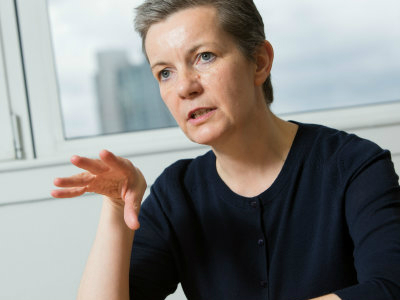
A tribunal has backed the Care Quality Commission’s decision to block a care provider’s attempt to re-register a hospital ward as a care home for people with severe learning disabilities.
The first-tier tribunal found the six-bedded The Bungalow unit at the Wast Hills hospital in Kings Norton was “clinical in nature”, not in the community and its culture was “unlikely to change from a hospital setting”.
It dismissed an appeal from provider Oakview Estates Limited, part of the Danshell group, against the CQC’s decision to refuse an application to register the unit as a care home in 2016. The CQC argued the proposal contradicted the national policy to shift more learning disability care to the community.
The tribunal, which handles appeals against CQC decisions on registration, ruled the care home proposal breached three regulations underpinning the Health and Social Care Act. These included requirements that care premises are suitable and appropriately located for the purpose they are being used for.
‘Step down’ service
The Bungalow is one of three buildings at the Wast Hills hospital site. Oakview Estates Limited argued that running the unit as a care home offering a ‘step down’ service from hospital would have helped people “take their first step” towards living in the community.
However, the tribunal found that The Bungalow’s location and design would hinder people’s independence and ability to feel part of the local community. It found the unit resembled a home from the outside but was “stark and bare” inside, partly because some patients could not handle a “high stimulus” environment, and there was “no sense of the identity” of people living at the service.
“The Appellant has chosen to utilise the bungalow which is on hospital grounds; it is clinical in nature; it is not possible to see what would be done differently and the culture of the location is unlikely to change from a hospital setting,” the tribunal judges said.
“If the fundamental principle of the guidance is that changes in the regulated activities being delivered should make a difference to the people receiving services, the evidence from the Appellant’s own staff was that it would not.”
Transforming Care
The tribunal warned that people discharged from hospital to the unit would not be covered by the national Transforming Care programme to move learning disabled care into the community.
“They would no longer be a priority for commissioners and they would not have access to Transforming Care funding to enable them to move to independent living,” the ruling said.
“This could result in a much longer period of time before a bespoke package was commissioned for them, a process which the Tribunal accepts can be slow, but would be even slower without the Transforming Care priority.”
Andrea Sutcliffe, the CQC’s chief inspector of adult social care, welcomed the tribunal’s decision. She said CQC’s rejection of the application was not a judgment on the quality of care provided at Wast Halls hospital, which it had rated ‘outstanding’, but on the site’s suitability as a home.
“In our registration review of The Bungalow, we found that the site lacked warmth and was very clinical – it had the feel of a hospital rather than a care home. Also, when we reviewed discharge arrangements, worryingly there were no plans to move people into community settings eventually, which meant there was a risk they could end up staying there indefinitely,” she said.
“We have a crucial responsibility to ensure that providers registering to care for and support people with a learning disability and/or autism are focused on delivering person-centred care in an environment that meets their individual needs and promotes their independence as far as possible.”
Efi Hershkovitz, chairman of Danshell Group, said he was disappointed with the tribunal’s ruling.
“The application was made in the very best interests of the people we support, the tribunal response acknowledges this and we still firmly believe that this is the case. There are no winners in this situation, I particularly feel sorry for the people we support and their families.
“The service would have provided an enhanced step down from hospital, which would have enabled the people we support to stay close to family and friends. Guidance from the CQC is inconsistent but the people we support are always at the forefront of our thinking, as they were when making this application.
“We will continue to work in the best interests of the people we support and will remain working closely with all stakeholders to support positive and successful discharges from hospital.”


 Bournemouth, Christchurch and Poole
Bournemouth, Christchurch and Poole  Hampshire County Council
Hampshire County Council  Lincolnshire County Council
Lincolnshire County Council  Norfolk County Council
Norfolk County Council  Northamptonshire Children’s Trust
Northamptonshire Children’s Trust  South Gloucestershire Council
South Gloucestershire Council  Wiltshire Council
Wiltshire Council  Wokingham Borough Council
Wokingham Borough Council  Children and young people with SEND are ‘valued and prioritised’ in Wiltshire, find inspectors
Children and young people with SEND are ‘valued and prioritised’ in Wiltshire, find inspectors  How specialist refugee teams benefit young people and social workers
How specialist refugee teams benefit young people and social workers  Podcast: returning to social work after becoming a first-time parent
Podcast: returning to social work after becoming a first-time parent  Podcast: would you work for an inadequate-rated service?
Podcast: would you work for an inadequate-rated service?  Family help: one local authority’s experience of the model
Family help: one local authority’s experience of the model  Workforce Insights – showcasing a selection of the sector’s top recruiters
Workforce Insights – showcasing a selection of the sector’s top recruiters 

 Facebook
Facebook X
X LinkedIn
LinkedIn Instagram
Instagram
Comments are closed.